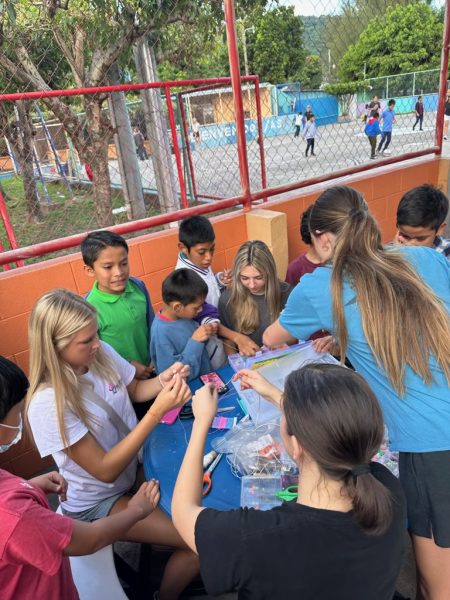Junior transfers to MD after living in Asia most of her life
ACTING THE ANNOYANCE: Sarah Castillo portrays the character Caliban getting teased by nymphs in Mater Dei Theatre’s production of The Tempest. In China, she performed in plays as well, one of which required her to learn how to say her lines while eating a peanut butter and jelly sandwich. She has continued to expand her acting repertoire while in the States, “I’ve always been interested in theatre, but I started getting into Shakespeare when I came to the US,” Castillo said. “I’ve always, ever since I can remember, been involved with theatre and performing.”
When she was only four years old, junior Sarah Castillo’s family began moving between countries following her father, who works behind the scenes at Disney and helped develop Shanghai Disneyland. First she moved to Japan, then back to America for first grade, and then to China around the age of seven. She stayed in China until eighth grade, and attended her first two years of high school in Japan.
Castillo adopted the languages of the countries she lived in, and was even considered fluent in Mandarin according to the Chinese Proficiency Test, or HSK. HSK assesses non-native speakers based on writing in everyday, professional, and academic contexts. It consists of six levels, the highest being HSK level VI. Castillo had reached level VI by seventh grade, but lost some of her Mandarin ability around the same year.
“The ‘I’m too cool for this, I’m in middle school now’ mentality hit me, so I stopped practicing Mandarin,” Castillo said. “Mandarin is very memorization-based, so I forgot a lot. In eighth grade I went from HSK VI to HSK IV, and I was like ‘No! I’m so dumb.’ And then I moved to Japan, so I couldn’t practice it anymore. I’m steadily gaining it back here.”
Despite being an American, Castillo never felt out of place with her international peers. She learned to recognize the differences between herself and those around her, and found her place within her community.
“Because I moved so young, I just felt like I was just a very white Asian kid,” Castillo said. “I never felt a disconnect until I was older [and] I realized that some of the people weren’t the biggest fans of foreign people and Americans, and I get that. [In Japan], because I was in an international community, we never really saw each other as different. It didn’t matter where you were from, what your background was, we’re all just people in the end.”
Castillo is no stranger to culture shocks. When first arriving back in the US, she went to a CVS to get her COVID-19 vaccine, and immediately spotted a dinosaur-taco hybrid —a “tacosaurus rex”—on a box. She got the impression that the US is very “out there” as a country. In the US, she appreciates crosswalks and being able to read street signs, but she misses the polite and respectful culture of China and Japan, and recognizes the differences in societal norms between Eastern and Western countries.
“People, especially in Japan, were really nice to employees, fast food workers, things like that. It’s very much a cultural difference,” Castillo said. “Chinese, similar to German, is a harsh sounding language, so someone could be telling you how you’re the most amazing person in the world, and you would think they were cussing you out and you’d be offended by it. I don’t want to say people [in the US] aren’t polite, because they are, but the social standard for politeness is very different.”
There are many places Castillo could call home. Although ultimately, it is China that she looks back on most fondly. This is because out of all of the countries she’s lived in, she resided there for the longest consecutive time, which is seven years. More specifically, she feels most at ease in one of China’s gated communities.
“There was this [compound] called The Emerald, and it had this really big soccer pitch,” Castillo said. “All of my friends and I would always go and hang out [there]. Some of my favorite memories [were made] there. The Emerald in general is one of the places where I feel home.”
Castillo fell in love with Mater Dei for its theatre program and the wide range of opportunities that the school offers, and she decided to enroll after Disney gave her father a promotion and relocated him to the US. She has since settled in by engaging with her classmates who share similar interests.
“Making friends at Mater Dei was actually really easy. I was claimed by the theatre kids and have been loving it ever since,” Castillo said. “I really had a hard time making friends at my old school so I’m really happy being with everyone here.”
Having moved so often, Castillo has had to leave friends behind in several countries. To combat this, she maintains contact through social media, keeping up with them through their posts. However, constantly moving to new countries also led Castillo to get used to forming new friendships.
“It can be hard sometimes because you have to leave your friends and try to make new ones. I think the hardest part was moving to Japan a second time because I was going into high school and everyone [else] grew up together. So I was kind of ‘that new kid’ for the entire year, but I eventually settled in,” Castillo said. “It may take a bit, but you do eventually settle in.”
Castillo has found a place for herself at Mater Dei, but eventually, she plans to return to the countries where she spent years of her childhood, even if it’s only for a short amount of time.
“I definitely will go back — if I have the money — at some point to visit,” Castillo said. “I might even move there because that’d be fun. But I’m not sure if I’m going to have an international job like my dad, because I do know I’m going to be working with film. But I do love traveling the world, and I want to see the world, and that will likely lead me back to China and Japan.”
Your donation will support the Student Publications Department at Mater Dei High School. Your contribution will allow us to keep our equipment up to date and cover our annual website hosting costs.




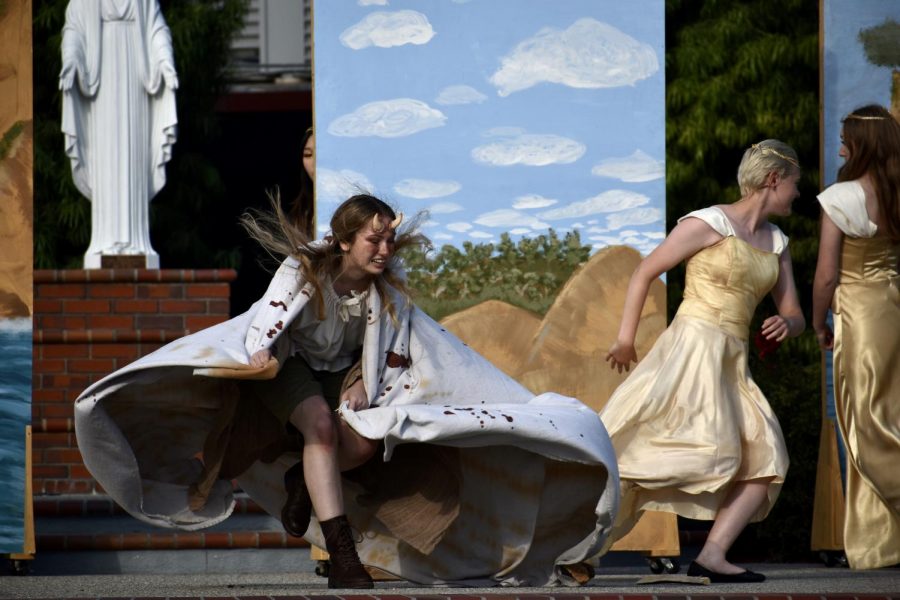
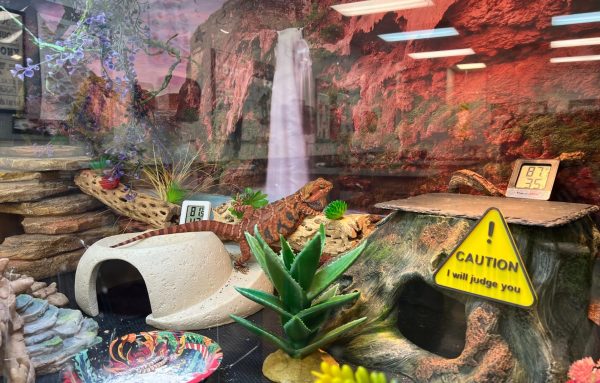
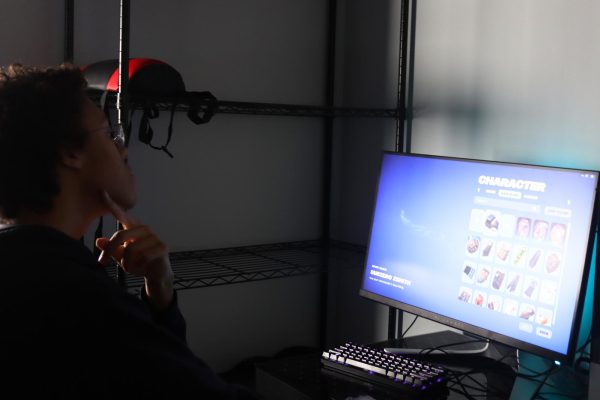
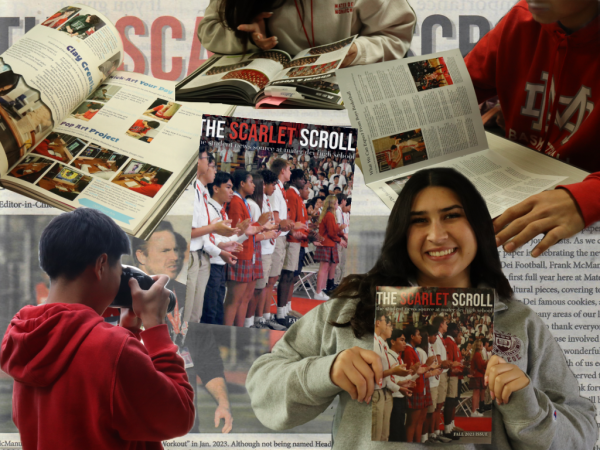
![DEBBIE IS DOWN: Freshman Izzy Dirtsopoulos stresses while looking over missing assignments. Students tend to feel discouraged and downhearted just like Dirtsopoulos did last year when in a similar situation. “It affected me mentally and emotionally because it made me feel like I was going to have an anxiety attack,” Dirtsopoulos said. “It made me feel very anxious and I [thought] Oh no, Im behind. What am I going to do?”
Photo Illustration by Boston Crenshaw](https://thescarletscroll.com/wp-content/uploads/2023/12/IMG_1983-600x400.jpeg)

![EXPLORING THE CITY Members of Mater Dei Student Publications pose for a photo near the clock tower at Boston College. From Nov. 1-Nov. 5, several students enrolled in Newspaper and Yearbook classes had the opportunity to visit Boston and learn more about the publications process through a journalism convention as well as sightseeing around the historic city. “Going out and exploring things is an opportunity given by Mater Dei for a lot of courses, [and] being able to go to Boston and learn about a class I’m very interested in is always a pleasure,” senior Jordan St. John said. Photo courtesy of Mater Dei Student Publications.](https://thescarletscroll.com/wp-content/uploads/2023/12/IMG_0866-450x600.jpeg)
![PEACE FOR THE WORLD Mater Dei President Michael Brennan and sophomore Alexa Giries light the peace candle at the beginning of the Respect Life Mass, praying for an end to all life-threatening violence. On Tuesday, Oct. 17 Mater Dei held an all school Mass to honor Respect Life Month. The Monarch community had the opportunity to pray together for peace and the preservation of all life. “Respect Life Month is a period of time where you can really dedicate [yourself] to prayer, praying for life and working towards improving life for all people,” sophomore Evan Nguyen said. Photo courtesy of Katherine Ruiz.](https://thescarletscroll.com/wp-content/uploads/2023/10/IMG_0661-600x400.jpeg)
